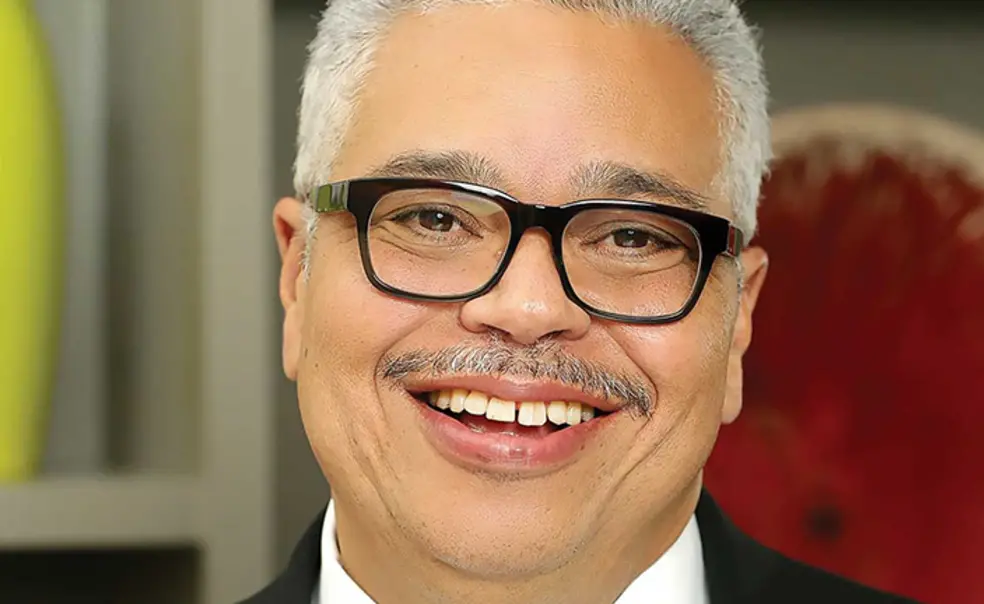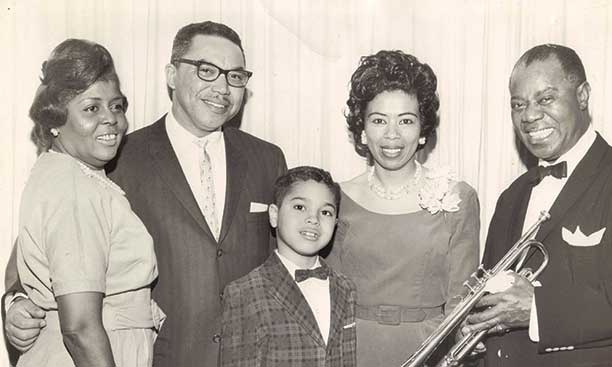Jerrauld Jones ’76 Was Among the First to Break Racial Barriers
‘Integrating was rough,’ says Jones, who was one of two Black kids to begin at Virginia Episcopal School in 1968
Fifty-five years ago this month, a private organization called the Stouffer Foundation began an experiment to integrate the most elite, all-white prep schools in the South, in what would later be seen as a turning point in private education. The schools included Virginia Episcopal School (VES), a boarding school in Lynchburg, which admitted two Black boys. One year later, Jerrauld Jones ’76 joined them.
“Integrating was rough,” says Jones, who was one of two Black kids to begin at VES in 1968.
“But with the value system of our family, I made A’s and was the best and the brightest among them. They hated that.”
The Stouffer program “would test, in very real terms, how much a Black child could achieve in a white environment and the price he would have to pay,” The New York Times Magazine said in a 2017 article. In Jones’ case, it meant enduring hostility and racial harassment and developing “intestinal fortitude” as a result. And he achieved, moving on to Princeton after graduation and becoming an attorney, a state legislator, a member of the state Cabinet, and now a judge.
Attending VES was not Jones’ first exposure to integration; he already had experienced rocks and slurs thrown his way. His parents had settled their family a mile away from a white public elementary school; Black children were admitted only if they passed a test to prove they were intelligent enough to attend, Jones says. The Jones brothers passed the test, and by eighth grade, Jerrauld had been identified as gifted — the kind of student sought by the Stouffer Foundation for its project.
“You will affect so many other people for the better simply by being the agent of change for one child.” — Jerrauld Jones ’76
The family knew attending VES would not be easy. Jones recognizes that his parents did not have to send him to boarding school, as there was an acceptable school within a mile of his home. “My parents understood the significance” of what he would do, he says. “As others were sitting down at lunch counters, I was trying to make A’s surrounded by white kids who were future leaders of the South and around the country in the years to come,” he explains. Those students “needed to be exposed to people like me, and I needed to be exposed to people like them.” Despite hostility from some, he made friends — “and some of them to this day are my best friends,” he says.
His tenacity runs deep, a product of parents who sought out success while raising their children under Jim Crow laws below the Mason-Dixon line. “My father worked hard,” Jones says. “He worked himself into an early grave, and then my mother picked up and kept us moving forward.”
Jones hadn’t imagined himself becoming an attorney, let alone a judge. Like his mother, he was a lifelong musician, learning to play the drums at 6. He also played the piano and trumpet for a jazz-rock band.
“I didn’t want to go to medical school, like the other Black Princeton graduates,” he says. “I went off on the road and played jazz music with my friends, much to the dismay of my then-recently widowed mother.” After a year on the road as a starving musician, he found his way back home.
Next was law school at Washington and Lee University School of Law. After graduation, he served as the first Black law clerk for Virginia’s Supreme Court.
Jones spent much of his career in private practice, and his proudest moments involved working with young people. In 2002, he was appointed the director of Virginia’s Department of Juvenile Justice. His role called for him to determine sentences, rehabilitation options, and transitional reentry of juvenile offenders.
He spent more than two decades as a judge at the Norfolk Juvenile and Domestic Relations District Court and the Norfolk Circuit Court, and served in the Virginia House of Delegates, a position later held by his son.
In June, Jones and his wife, Lyn Simmons, who is also a judge, took on another role: grandparents. This has given him a new perspective and a sense of hope.
“My term [on the court] will expire in two years, and I will be 70, and that may be the endpoint of this part of my life,” he says. But he adds: “I don’t look at it as the end of my productive time.” He wants to continue working with young people. “You will affect so many other people for the better simply by being the agent of change for one child,” he says.











1 Response
Carolyn Lambert
8 Months AgoJudge and Va. Delegate Jerrauld Jones ’76
An outstanding colleague and friend to my husband, Sen. Lambert, and close friend to our family. He will sorely missed.